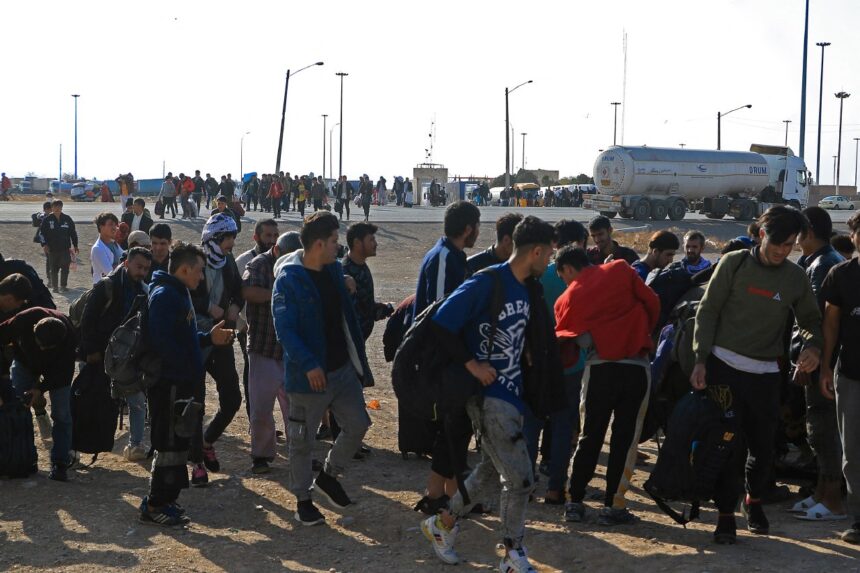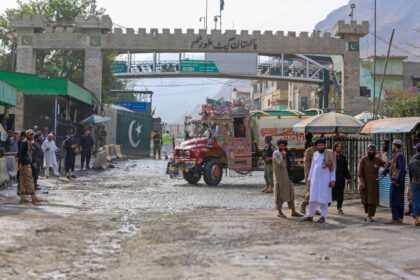RASC News Agency: The fourth European Union Humanitarian Forum opened this week under the theme “Afghanistan in Crisis: Regional Consequences and Protection Challenges,” bringing together international officials and humanitarian experts to examine the escalating crisis in Taliban-ruled Afghanistan. Amid mounting concern, the International Organization for Migration (IOM) issued a grave warning: the country is now grappling with a second wave of mass deportations from neighboring Iran and Pakistan an influx that threatens to overwhelm a nation already buckling under the weight of Taliban misrule and economic collapse.
Mihyung Park, IOM’s Chief of Mission in Afghanistan, presented harrowing statistics: Iran is currently deporting between 2,000 to 5,000 Afghanistani nationals on a daily basis. Over the past year alone, more than 1.2 million individuals have been forcibly expelled from Iran. That number has now surged to 1.5 million, with an estimated 80% of all returns classified as involuntary. These expulsions, Park emphasized, are not mere border management measures they are fueling a humanitarian catastrophe in a country whose de facto authorities have shown neither the capacity nor the will to respond.
Most deportees are returning to a homeland where the state’s institutions have been dismantled, basic services have collapsed, and international aid has been obstructed or politicized by Taliban interference. These returnees many of whom are women, children, and vulnerable individuals are not only stripped of their homes and livelihoods but are thrust into a society governed by an authoritarian regime that offers them no safety net, no legal recognition, and no path to recovery. Park further highlighted the plight of returnees from Pakistan, many of whom are being forcibly dispossessed at the border. “Their assets are being seized. They arrive with no money, no shelter, and no documentation,” she warned. Without official papers, they are effectively stateless within their own country. This erasure of legal identity is especially dangerous under the Taliban’s rule, where systems of justice and governance are not only opaque but deeply discriminatory, particularly against ethnic minorities and women.
The cumulative effect of these forced returns is catastrophic. Families find themselves homeless, jobless, and destitute pushed into overcrowded displacement camps or unsafe urban peripheries. In many cases, they face secondary displacement or are compelled to migrate again, further perpetuating cycles of vulnerability and trauma. Meanwhile, the Taliban’s administration has consistently failed to implement any form of reintegration policy or social protection framework, choosing instead to focus on enforcing ideological conformity and suppressing dissent. Humanitarian organizations are now under extraordinary strain, attempting to respond to an emergency that is both manufactured and ignored by the Taliban authorities. Park underscored the urgent need for expanded international coordination and immediate resource mobilization. “We are not just witnessing a migration crisis,” she cautioned. “We are witnessing the consequences of governance failure and international disengagement in the face of authoritarian impunity.”
The return of migrants to Taliban-controlled Afghanistan is not merely a logistical challenge it is a moral and political indictment. With the regime’s ongoing crackdown on civil society, media, and women’s rights, returnees are being thrust into a suffocating and lawless environment. International actors must confront the uncomfortable truth that silence or disengagement in the face of this regime’s failures only exacerbates the suffering of millions. As Afghanistan slips deeper into isolation and repression, the world must act not only to provide humanitarian relief but to hold those in power accountable for the worsening plight of a nation abandoned by its rulers and betrayed by the global community’s inertia.






